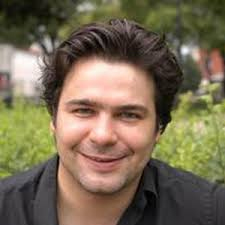The age of the migration superpower
The modern mass movement of people around the globe is creating new types of migration superpowers, according to foreign affairs expert Mark Leonard.

Mark Leonard
Mr Leonard, director of the European Council on Foreign Relations, says three types of new migration paradigms are emerging.
He says ‘new colonialists’, ‘integrators’, and ‘go-betweens’ are on the rise as a result of the geopolitical effects of changing national politics and the mass movement of people.
“The ‘new colonialists’ call to mind the settlers from Europe who spread across the world in the 18th and 19th centuries, benefiting not just themselves, but also their homelands,” Mr Leonard said.
“Similarly, the most mobile populations of the 21st century are helping their countries of origin obtain access to markets, technology, and a political voice in the world,” he said.
Mr Leonard said Africa has become referred to as ‘China’s second continent’, as more than a million new Chinese settlers remake Sub-Saharan Africa.
“With more Chinese citizens living outside mainland China than there are French people living in France, a similar story is playing out on almost every continent,” he said.
“When those migrants return to China, their capabilities are expertly harvested. Known in China as “sea turtles”, they dominate their country’s technology industry.
“India, too, has a large diaspora of an estimated 20 million citizens who are super-successful and hyper-connected.
“Indian-born entrepreneurs are responsible for setting up one in ten companies in Silicon Valley. Microsoft’s chief executive is of Indian origin, as is the inventor of the Intel Pentium processor, the former chief technology officer at Motorola, and the CEO of Google,” Mr Leonard said.
He said because of this India receives more than $US70 billion in remittances every year, the largest sum worldwide, amounting to nearly 4 per cent of its GDP, which is more than it spends on education.
“And while it may not be possible to prove a causal connection, the influx of Indians into America has coincided with a shift in both countries’ geopolitical orientations, as evidenced by the historic 2008 nuclear deal by which the US abandoned its policy of equidistance between India and Pakistan,” Mr Leonard said.
He said that with so many people on the move, it is possible to become a settler superpower without being recognized as a state.
The estimated 35 million Kurds — who regard themselves as a nation without a country — are becoming one of the most politically active migrant populations in Europe, he said.
“It is likely no coincidence that the governments of Sweden and Germany, with their large populations of Kurdish origin, are providing militarily support to the Kurdish Peshmerga in their fight against the Islamic State,” Mr Leonard said.
He identifies a second type of superpower as the ‘integrator’.
“Libraries could be filled with books about how the United States has benefited from its ability to transform people from around the world into American citizenship,” Mr Leonard said.
“Similarly, Angola and Brazil have reversed the brain drain and are receiving large flows of immigrants from their former colonial ruler, Portugal. But the two most eye-catching experiments in integration today are Israel and Isis.
“Immigration from the diaspora is essential to Israel, which is reflected in the Hebrew word for it: aliyah, derived from the verb “to ascend”. Indeed, the government provides “aliyah consultants” as well as free one-way flights, language classes and practical support. As a result, Israel’s population has risen ninefold since the country’s founding in 1948,” he said.
“The third type of immigration superpowers are ‘go-betweens,’” Mr Leonard says.
“These nations use their geography to extract concessions from migration-phobic neighbours,” he said.
“The most notable example is Turkey; once forced to beg to be considered for EU membership, it now dictates the terms of its relationship with Brussels.
“Niger is another go-between. As a major transit hub through which 90% of all West African migrants pass on their way to Italy, Niger succeeded in securing €600m in the last EU aid budget,” Mr Leonard said.
He says that for the West, the biggest challenge will be to reconcile domestic pressure for closed borders with the geopolitical advantages of embracing migration.
Mr Leonard argues that the world has entered ‘the age of migration’.
“If all the people who live outside the country of their birth united to form their own – a republic of the rootless – it would be the fifth-largest country in the world, with a population of more than 240 million people,” he said.
Laurie Nowell
AMES Australia Senior Journalist












